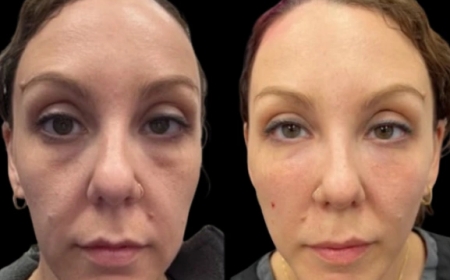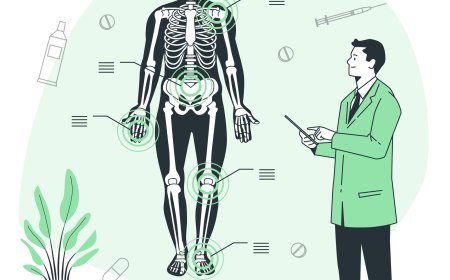From Trauma to Triumph: The Power of Mental Health Advocacy
Explore how mental health advocacy transforms trauma into triumph, and why lived experience is essential in shaping support, awareness, and healing in communities.

Introduction
Trauma often enters our lives uninvitedthrough abuse, loss, violence, neglect, or systemic injustice. It leaves behind scars, both visible and unseen. But for many individuals, that trauma becomes a turning point. Not the end of their storybut the beginning of advocacy, transformation, and healing.
Mental health advocacy is one of the most powerful tools in changing not just individual lives but communities, institutions, and public discourse. In this article, we will explore how survivors move from trauma to triumph, and why their lived experience is the cornerstone of effective mental health awareness.
Understanding the Journey from Trauma to Advocacy
What Is Trauma?
Trauma is not just an emotional woundits a psychological and physiological response to deeply distressing events. Whether it's childhood abuse, domestic violence, substance abuse, or systemic oppression, trauma alters the way we think, feel, and interact with the world.
Yet, trauma doesnt have to define a person forever.
The Turning Point
At some point, many survivors reach a place of claritywhere healing begins to outweigh pain, and the desire to help others ignites. This is often the birth of an advocate. It's not always dramatic. Sometimes its quiet: a decision to speak at a community center, to mentor a struggling youth, or to stand on a stage and say, This happened to meand I made it through.
Why Lived Experience Matters in Mental Health Advocacy
Experience Builds Trust
People listen to those who have walked the path. A mental health speaker who has personally faced trauma speaks with a truth and authority that resonates deeply. Survivors can cut through the clinical jargon, connecting instead on a human level that says, I get it.
That connection builds trusta key pillar of any effective mental health initiative.
Expertise Beyond Credentials
While academic credentials are valuable, lived experience offers a kind of expertise that can't be learned in a textbook. It's the kind of insight that tells you how it feels to live with PTSD, anxiety, or depression. How hard it is to show up when the world feels unsafe. And how essential hope, representation, and support are.
When mental health advocates share their journeys, they become both educators and motivators. They demystify therapy, destigmatize medication, and humanize the strugglebecause they've lived it.
The Ripple Effect of Advocacy
Mental health advocacy doesnt end with speeches or campaigns. Its impact ripples outward, influencing:
Families and Communities
A single mental health speaker sharing their story can spark change in households and neighborhoods. Parents may begin to speak more openly about emotions. Schools may implement trauma-informed policies. Faith leaders might start hosting wellness workshops.
Healing doesnt happen in isolationit thrives in community.
Policy and Systems
Survivors who become advocates often take their messages to policymakers and healthcare institutions. Their voices help reshape outdated systems that criminalize or neglect those living with mental illness and substance use disorders.
From advocating for trauma-informed care in schools to pushing for better funding for community clinics, mental health advocacy helps systems grow more compassionateand more effective.
Advocates Who Understand Substance Abuse and Mental Health
Many individuals affected by trauma also experience substance abuse. These intertwined challenges require advocates who understand both worlds.
A mental health speaker who has overcome addiction brings invaluable insight to the table. They understand the shame, the cycles, and the systemic failures that often contribute to both trauma and substance use. And they can speak to the kind of integrated care thats truly effectivemental health support that doesnt punish, but empowers.
Breaking the Cycle
Advocates whove overcome both trauma and addiction help others break generational cycles. Their work often reaches vulnerable populations: incarcerated individuals, foster youth, survivors of domestic violence, and others who have historically been silenced.
Their message is powerful: You are not broken. You are not alone. And you are not beyond healing.
The Role of Mental Health Speakers in Creating Cultural Shifts
Mental health speakers are more than inspirational figuresthey are catalysts for cultural change.
They help:
-
Normalize therapy and emotional vulnerability
-
Challenge outdated beliefs about mental illness
-
Create safe spaces for marginalized voices
-
Push back against shame and silence
When mental health is spoken about openlyespecially by those who have endured and triumphedstigma begins to fall away. What was once whispered becomes discussed. What was once hidden becomes honored.
Building EEAT in Mental Health Conversations
Googles EEAT (Experience, Expertise, Authoritativeness, Trustworthiness) framework doesnt just apply to SEOit mirrors how effective advocacy works in the real world.
-
Experience: A mental health speaker who has overcome personal trauma embodies lived experience.
-
Expertise: That speaker adds depth by understanding trauma-informed care, recovery models, and resilience-building practices.
-
Authoritativeness: Their voice holds weight, backed by personal survival and public action.
-
Trustworthiness: When survivors speak with honesty and vulnerability, audiences feel seenand safe.
True mental health advocacy checks every one of these boxes. Thats why its so powerful.
From Silence to Strength: A Personal Call to Action
If youve experienced trauma, your story matters. If youve survived substance abuse, your insight is needed. If youve walked the hard path and come through ityour voice could light the way for someone else still struggling.
Mental health advocacy isnt just about public speaking or activism. Its about showing up, telling the truth, and helping others believe healing is possible.
Its about taking the worst chapters of your life and using them to write a new endingfor yourself and for others.
Conclusion: Advocacy in Action
Transforming trauma into triumph takes courage, healing, and the willingness to be seen. When mental health speakers lead with their stories, they do more than raise awarenessthey raise hope.
If youre looking for a speaker who understands both mental health and substance abuse, and who brings lived experience, expertise, and compassion to every roomvisit www.toniercain.com.
Tonier Cain is not just an advocate; she is a living example of triumph through truth, and her voice is shaping the future of mental health awareness.

































